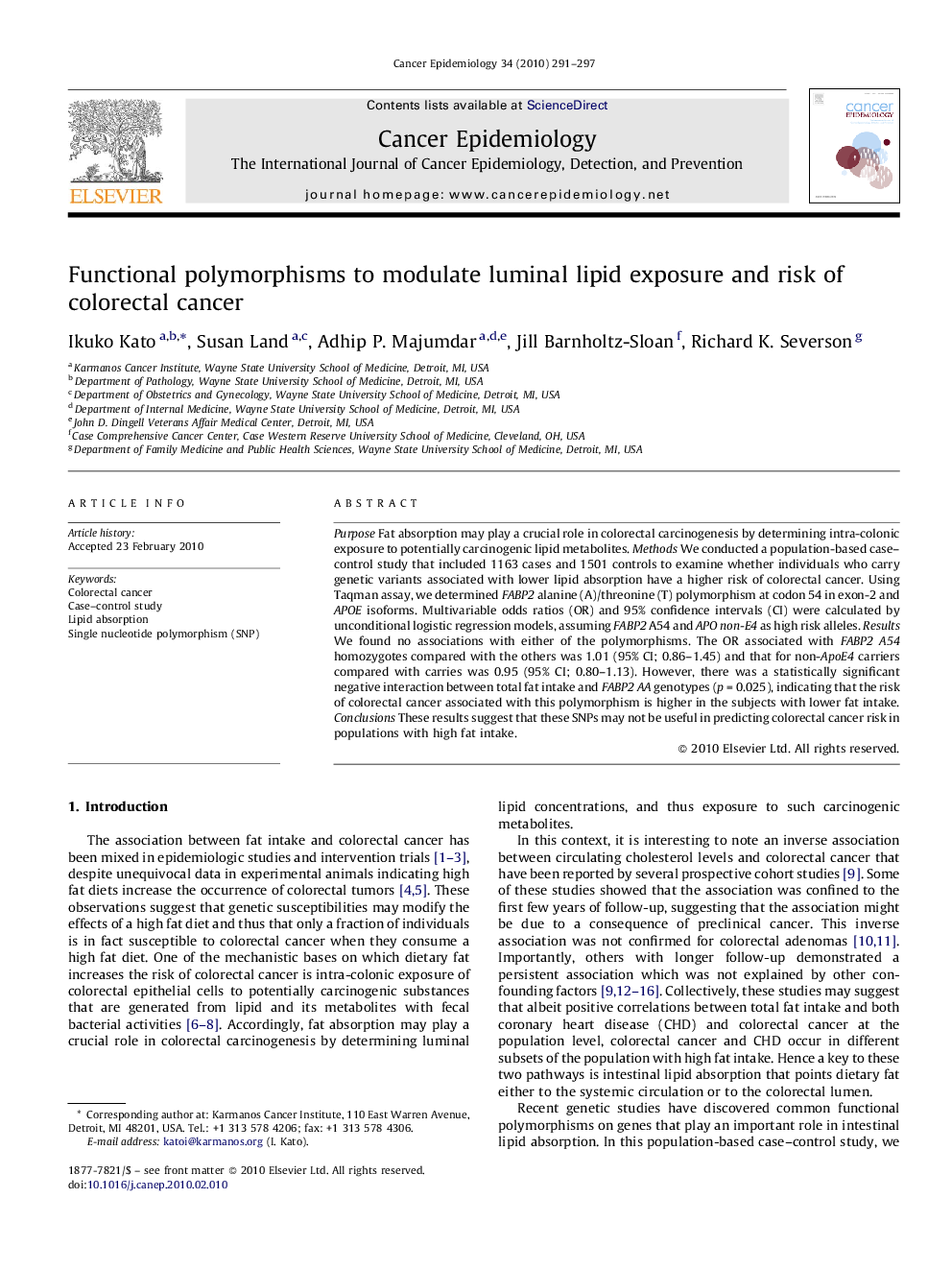| Article ID | Journal | Published Year | Pages | File Type |
|---|---|---|---|---|
| 2109333 | Cancer Epidemiology | 2010 | 7 Pages |
Purpose Fat absorption may play a crucial role in colorectal carcinogenesis by determining intra-colonic exposure to potentially carcinogenic lipid metabolites. Methods We conducted a population-based case–control study that included 1163 cases and 1501 controls to examine whether individuals who carry genetic variants associated with lower lipid absorption have a higher risk of colorectal cancer. Using Taqman assay, we determined FABP2 alanine (A)/threonine (T) polymorphism at codon 54 in exon-2 and APOE isoforms. Multivariable odds ratios (OR) and 95% confidence intervals (CI) were calculated by unconditional logistic regression models, assuming FABP2 A54 and APO non-E4 as high risk alleles. Results We found no associations with either of the polymorphisms. The OR associated with FABP2 A54 homozygotes compared with the others was 1.01 (95% CI; 0.86–1.45) and that for non-ApoE4 carriers compared with carries was 0.95 (95% CI; 0.80–1.13). However, there was a statistically significant negative interaction between total fat intake and FABP2 AA genotypes (p = 0.025), indicating that the risk of colorectal cancer associated with this polymorphism is higher in the subjects with lower fat intake. Conclusions These results suggest that these SNPs may not be useful in predicting colorectal cancer risk in populations with high fat intake.
